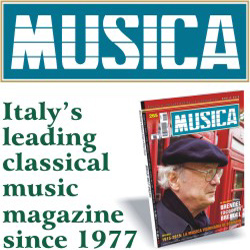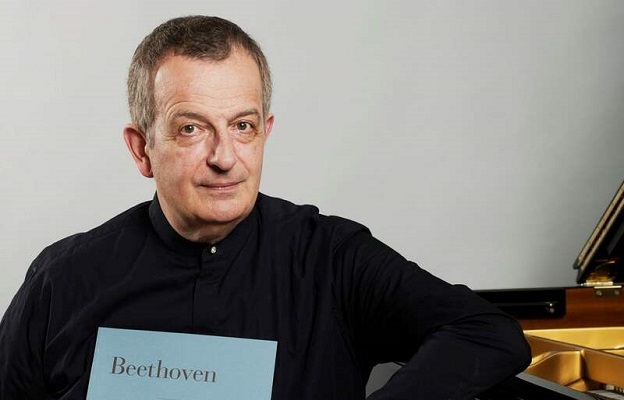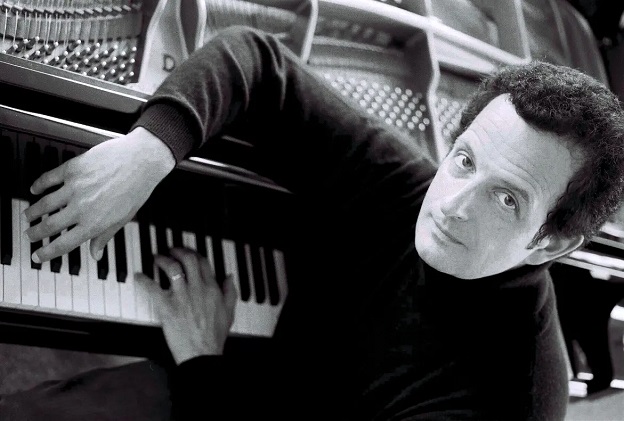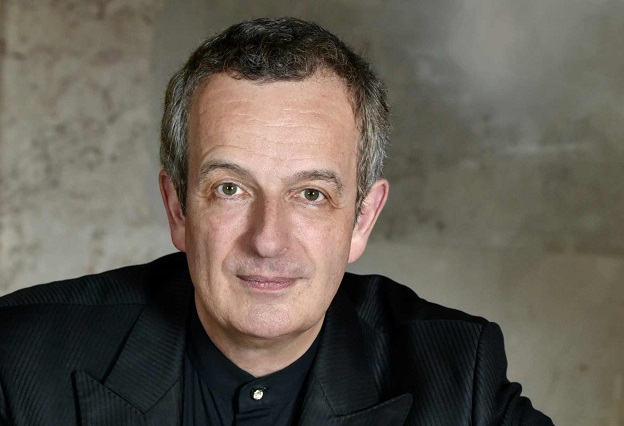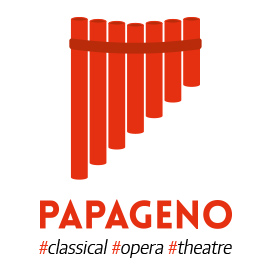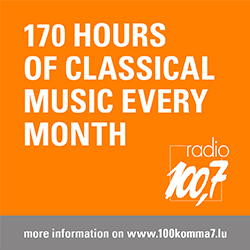His fellow students at New York’s Juilliard School called Michael Korstick « Dr. Beethoven. » But it was only at the age of 43, after 20 successful concert seasons, that his first CDs appeared – and promptly caused a sensation. Since then, he has released some sixty productions, for which he is receiving a Special Achievement Award from the International Classical Music Awards (ICMA) this year. ICMA Jury member Remy Franck (Pizzicato/Luxembourg) talked to the pianist.
In the music world, there are the so-called stars and there are a myriad of artists that not everyone necessarily knows. You belong to the latter, as someone who works quite seriously, gives a lot of concerts and makes a lot of records, and I suppose you don’t like the media hype either?
I once read in an article that I was the antistar of the scene, and I actually liked that quite a bit, because I can live with that attribute better than anything else. For me, the first question is: for whom do I make music and for whom do I want to make music? And there my position is actually quite clear, because music is by itself not some sound wallpaper for millions or billions of people, because you have to deal with it a bit. So I really address myself, even if this may sound highfalutin, to people who are enthusiastic about music, to people to whom music means as much as it does to me. I would like to share my music with them.
So music is something elitist for you?
The word elitist has a negative connotation, but I understand what you mean, and I really agree. Music is an art form that also demands something from people, but then on the other hand it is something wonderful, because to the one who really cares for it, it naturally opens up, and the reward one can get from it is much greater than in the case of shallow entertainment.
You are also known for being particularly uncompromising.
For me, that’s normal.
But not for everyone, today!
Now I would have to ask the counter question: Shouldn’t that be normal for everyone? Music is not something arbitrary, music makes very high demands, music is an uncompromising art. As performing musicians, don’t we also have to be uncompromising?
But very often it’s simply a matter of the rehearsal period being too short.
That can be a problem in some cases, but it rarely is. When you work with orchestras and conductors, you’re dealing with really professional and well-intentioned musicians, and it’s actually more of a myth that there’s friction.
But it is also about characters, about the ego of one and the other, of the soloist and the conductor under certain circumstances.
Once it comes to that, it is already too late. As a rule, it is indeed the case that the music is in the foreground, and whatever differences there are, in the sense of different views, can usually be settled by argument. Sometimes that can also be a very interesting tension, because when two different views meet, and bring new aspects to an interpretation. After all, I don’t want to deliver the same interpretation with every orchestra and conductor.
You are known for having a very personal musical language and for sometimes going out on a limb. Where does this urge to be different come from? Or is it simply the result of a long involvement with the subject matter?
You’ve summed that up well; it has nothing to do with the urge to be different. On the contrary, a pianist who does things just to be different has automatically already earned my contempt, and in the strongest terms. This as the only criterion is a downright perversion. No, going far out on a limb for me really means going to the bottom of the musical text, finding out the possibilities that the composer has anchored there. My ‘otherness’ is simply based on the fact that the listening habits of my audience may have gone in the wrong direction due to a certain tradition, and that what is actually note-text immanent, which is then presented on the concert podium, suddenly sounds different to the listener than what he is used to. I don’t want to claim that being different is a quality in itself, but I think that the preoccupation with the musical text and this exact sounding out is the real criterion of interpretation.
Now there is a certain danger associated with the fact that you also deal a lot with the subject matter and that ultimately some things sound researched.
That is one of the very great dangers that one must avoid. There are various ways of arriving at an interpretive solution. One possibility consists of an intellectual calculation, and this calculation is problematic because there is no tonal basis for this calculation. The other extreme is the decision to play from the gut. That may be the better way, depending on the talent, but I think as important as it is to do things instinctively sometimes, it is essential to be clear afterwards about why certain instinctive decisions were made. In my preparations, I very often give myself the freedom to do certain things instinctively, and I sort of analyze later what I actually did, why I did it, and also whether it can be related to the desired result, whether it can be justified from the score. I think the danger of intellectual drift, of artificiality, is thus very well prevented.
What about fidelity to the text, which you attach great importance to?
It may seem contradictory when I say that textual fidelity cannot always be tied to the notes. For me, faithfulness to the text means much more honesty towards the spirit of the work and towards the composer, and that in turn is a broad field. The performer who is faithful to the text or the work asks what he can contribute to the shaping of a work, not what the work can bring to his personal career. Unfortunately, lately I have the feeling that various interpreters do not know exactly on which side they actually stand.
You have, however, made some minor interventions. You created your own version of Rachmaninov’s Second Sonata, you also changed something in the text of ‘Pictures at an Exhibition’ …
Basically, the faithfulness to a work is to be defined differently from composer to composer. In the case of Bach and Mozart, this is a very wide field, because for Mozart and Bach the taste of the time was different. If you read Mozart’s letters in which he judged other musicians, his first criterion was ‘taste’ and only then came technique and other things. Of course, the word ‘taste’ would be defined differently today, because it did not mean arbitrariness. What used to be called taste, in Mozart’s time, is now called stylistic confidence. This refers to the performer’s intuitive knowledge of how to deal with a work of a particular period. Bach and Mozart relied heavily on the taste of the performer, who were very often composers themselves, and knew exactly how to play a work. Improvisational freedoms therefore played a major role, which is why ornamentation was sometimes not notated at all and left to the performing musician. Then came Beethoven, who in this respect was already looking ahead to the 19th century and practically already saw the professional, no longer composing interpreter approaching him and his work. Already his first sonatas are overloaded with performance markings, he actually leaves nothing to the interpreter, but is of an unbelievable clarity. There is hardly a note in his works where there is not a performance designation. So, when you play Beethoven, you must first of all, in order to penetrate the character of a work, do meticulously what Beethoven demands of you, that is, follow every performance designation. Only then can the actual artistic work begin. If we now go further into the 19th century – and now I am approaching your question – then this faithfulness to the work can be tied less and less to the notes, because in the 19th century the interpreter had to bring an idea across the ramp, and this idea was a philosophical one, an abstract one, which could not be tied to the text at all. Wonderful examples are works by Chopin, which he wrote down several times. There are some waltzes and nocturnes of which there are three handwritten versions, and there it is very interesting to see that these versions always differ very much from each other, because a romantic piece has many more possibilities of interpretation. If the composer includes these new possibilities of interpretation in a new manuscript, then that means that the interpreter has greater freedom of action. And the further you go into the 19th century, the greater these freedoms become. By the way, these freedoms are demanded of the interpreter, the composer expects him to bring his personality into it, and we know from Liszt’s many lessons how much freedom he gave his students, including interpretive freedom in his own pieces. He noted down for each pupil his own variations of interpolations and cadenzas, and so on. Then in the 20th century there was a backlash from composers like Bartok, Prokofiev, and Stravinsky, who again took the interpreter strongly at the curb. And now I’ve almost answered your question as to why I allow myself, albeit quite gently, to interfere with the text of works. This is something that many performers did in the mid-20th century, small instrumental retouches to simply clarify or change certain sound effects. In a work like ‘Pictures at an Exhibition’ that’s legitimate; it’s part of the interpretation. Now, if you are referring to my version of Rachmaninov’s 2nd Sonata, it is grounded in the work itself. There are two versions of this sonata, an original version from 1913, which the composer himself did not seem entirely successful. Rachmaninov was, after all, a composer who first wrote material and then slowly trimmed this material to arrive at a final solution. He did this again and again in his great pieces, and so it came to this second version of 1931, when Rachmaninov had already changed his style. This revision did the piece a lot of good, but also harmed it, because he went one step too far, partly thinned out and simplified the pianistic texture too much and simply operated out some formally important passages with scissors, so that the final result is not quite organic. Therefore I decided to use a mixed version. By the way, Horowitz also created such a mixed version years ago and even had it approved by Rachmaninov.
Do you actually see yourself as a German pianist or already a globalized one?
I am quite an interesting mixture of promenades! I was born in Germany, of course, and received my first training in Germany, but I came into contact with the Russian School at the age of 19, with Tatjana Nikolajewa, to whom I later remained loyal for many years. When I was 20, I went to America, where I studied for seven years at the Juilliard School with a Russian-born teacher. With me, pretty much all influences came together, and I believe that this has rather benefited me than harmed me. So I am certainly not a ‘German’ pianist. In fact, during my first years in Germany, I was often attacked as an alleged over-virtuoso, because the legacy of my Russian teachers had left its mark on my playing. But I am very happy about the fact that exactly this kind of confrontation with music by Liszt, Rachmaninov and Prokofiev has influenced my Beethoven playing and thus, I believe, also contributed to a synthesis. I always venture the provocative thesis that a pianist who cannot play Rachmaninov’s Third Piano Concerto cannot and should not play Beethoven.
You said you went to the Juilliard School. Now that’s a school where you first have to be accepted. How did you make that leap?
Well, I sent a tape recording of Beethoven’s Hammerklavier Sonata to the teacher of my choice, Sascha Gorodnitzki, with whom I really wanted to study because he had been the assistant and master student of Joseph Lhévinne, whom I particularly admire. When Gorodnitzki heard this tape – this was later brought to my attention by fellow students – he excitedly told everyone that a completely unknown German had sent him the best fortepiano sonata he had ever heard in his entire life, and so naturally all doors were open to me.
That was a bit cheeky, just to go there with the Hammerklavier sonata…
Honestly, I didn’t think anything bad about it! During my first visit to America, I had established a telephone contact with Gorodnitzki, and since he was not in New York at the time, he could not hear me, and so he then asked me to submit a recording, and he said that he would like to hear a Beethoven sonata in any case. Since I already had all 32 sonatas in my repertoire at that time, I asked him quite innocently which one he would like to hear. I noticed how his breath caught, until he then asked me what exactly I meant by that. And then, of course, I was obliged not necessarily to deliver an Opus 49 sonata.
There are many more pianists today than in the past, simply because more are being trained, pianists who also play technically well, but without necessarily being the better interpreters.
The average level of pianists has risen astronomically in the last 50 years. At the turn of the 19th and 20th centuries, there were just ten pianists in the world who could play a piece like the Hammerklavier Sonata at all, from a purely technical point of view, and there were also ten superstars at that time. It just so happens that they were the ones who could technically master the Hammerklavier Sonata. Today, even among all those pianists, there may be ten quite good pianists who know how to thrill audiences all over the world, but there are ten thousand pianists who can master a piece like the Hammerklavier Sonata at least technically effortlessly. At the top, among the really serious performers, nothing has changed, but in the middle, the level has improved enormously. This is a welcome development, but it leads to a problem: what audience today is still able to distinguish a well-trained, decent pianist from a great performer, when both deliver the same notes on the podium? This is where the audience’s judgment is called for, and sometimes I quietly doubt whether this judgment has kept pace with this development!
Perhaps the visual elements play too big a role?
The entertainment mania, a problem of today! There is indeed a certain kind of pianists who have a very high entertainment value, and that is a quality that is perhaps not a musical one, but it is a quality that is thoroughly appreciated by the so-called broad public today. And that brings us back a bit to your first question. That is precisely the audience for which I do not work, which I do not want to reach in this form.
How do you walk the tightrope between intellect and inspiration – without any airs and graces – that should and must somehow captivate the audience?
I think the best characterization of piano playing was once given by the great Vladimir Horowitz, when he said that piano playing is a mixture of intellect, heart and technical means: « Without technique you are an amateur, without heart a machine and without intellect a disaster ».
That concerts are important for someone who plays as much as you do is normal. But how important are recordings for you?
I value recordings very much as a medium, because that is the only thing that preserves our interpretative intentions unaltered for the past. The advantage of recording is that you can work on the ideal conception of an interpretation, and this ideal conception is freed from all contingencies in the recording studio. In concert, you have to present a piece as a whole. When you go on the podium and play the first note of the piece, they know that you have to take the piece as a whole and stay on the ball until the final note. When they go into the studio, the musical challenge is on the same level, only you know that any accidental that might tarnish a concert experience can be corrected here after the fact. There are indeed many colleagues who experience a lack of inspiration due to this repeatability, but for me, on the contrary, the studio recording is a great challenge, because I know from the start that it really has to be a reflection of the ideal performance. And that’s why I’m then always in a position to take even more out of myself in the studio, to risk even more, and to really only have a dialogue with the piece and the composer that is not affected by external coincidences. If by chance there are twenty people with the flu in the audience during the slow movement of a Schubert sonata, you know what I’m talking about.
Earlier you spoke about the coincidences in the concerts. The way you play depends on many factors, and the hall is certainly an important component, as is the audience and also the piano. Isn’t it a horror for you to come into a hall and not know if the piano is good, even if it’s a Steinway?
The question is, if it says Steinway on it, is it Steinway in it? No, let’s put it this way: Of course there are always coincidences in life as far as these things are concerned, but if you play in an important, accepted concert hall, you can assume that the piano will not fall below a certain level. But life is full of surprises. So it can also be that you have to play on a terrible instrument. There are pianists who take the easier route and refuse to play on a certain instrument, but for me that is the ultimate challenge, to see how much I can take as a performer and how much I can still do for the audience and the music even under less than ideal conditions.
So Steinway is not always the same Steinway either?
We live in industrial times, and most people believe that one grand piano is like another, like cars. With Steinway, that may still be possible, it is the leading brand, and you can also be sure that a new Steinway will not fall below a certain level, just as with a new car you can be sure that the engine will start when you turn the key. But a Steinway is not a Mercedes C-Class with which you can easily drive 200,000 kilometers without having to go to the workshop. The comparison is more apt to be made with Formula One, because there you also wonder why the tires have to be changed and the valves readjusted after three laps. Grand pianos are made of living material, and even if a company has a construction principle, wood and metal must live together in this complex organism that is the piano, and this causes the differences that exist from piano to piano, even of one and the same brand and series.
It is said that a piano ages anyway, so it has to be played in, which makes it even more difficult to say how it will develop.
You never really know how it’s going to go. There are no fixed parameters. There really are pianos that, when they leave the factory, have already reached their peak as instruments, there are also those pianos where there is still a maturing process.
Speaking of the piano, do people actually see you playing the fortepiano?
Yes and no. For me, the fortepiano is not an instrument of the concert podium, but rather a medium of information. In Beethoven’s case, some of the performance rules of the scores refer to the piano that Beethoven used, which had a different resonance, a different tone duration. Therefore, you will find me playing a fortepiano, just to check what effect Beethoven’s prescriptions had exactly, because it cannot be a matter of simply implementing Beethoven’s pedal prescriptions one-to-one on a Steinway D grand piano, because that would lead to completely wrong results. So you have to see what sound the composer’s indication produced, and then you have to find your own solution how to achieve this sound on a modern Steinway. However, I must say that Beethoven would probably have rejoiced if he had had a modern Steinway at his disposal, because he complained all his life about the miserable qualities of the instruments. And I even believe that it is perverse to put these instruments, about which Beethoven complained so much, on the concert podium today and claim that they are the measure of all things….. So there I defend myself vigorously!
But the facets of a life do not only include music. What is there for you besides music?
When asked what I could have imagined as an alternative professional career, I like to say: If I hadn’t become a pianist, I would be a test eater for the ‘Guide Michelin’ today!
That means you are an epicure somewhere?
I enjoy not only music, but also food, good drinks. What could be better than a great wine, a good meal, a nice Cuban cigar… If we have all that, plus Beethoven and Rachmaninov, then we are happy as can be.
But in the end, music is not only a pleasure…
It is a complex thing, but I would like to leave the enjoyment in the foreground. For the performer, of course, there is hard work behind it, much of which the audience knows nothing about and, in my opinion, need know nothing about. For me, music ultimately also has a lot to do with fun, and, please understand me correctly, even a piece like the slow movement from Beethoven’s Hammerklavier Sonata can be fun. It’s just a question of how you define fun now. If you understand fun in the sense of a really deep inner satisfaction, then it also fits this piece. It must always be about, in life as in art, that everything has its meaning and purpose.
What are you most afraid of?
Not being able to live up to your own expectations.
What are you most happy about?
To be understood correctly.







